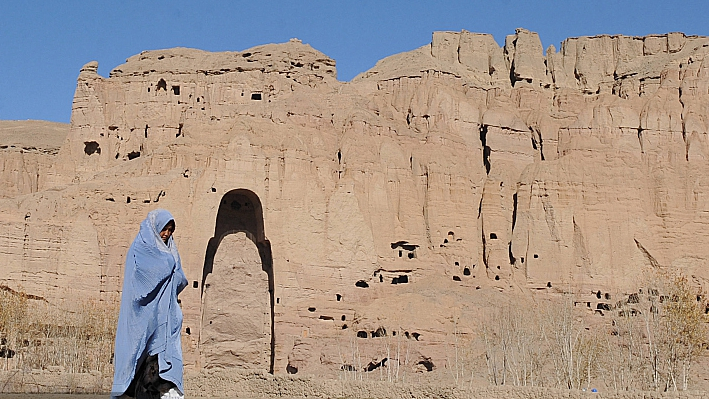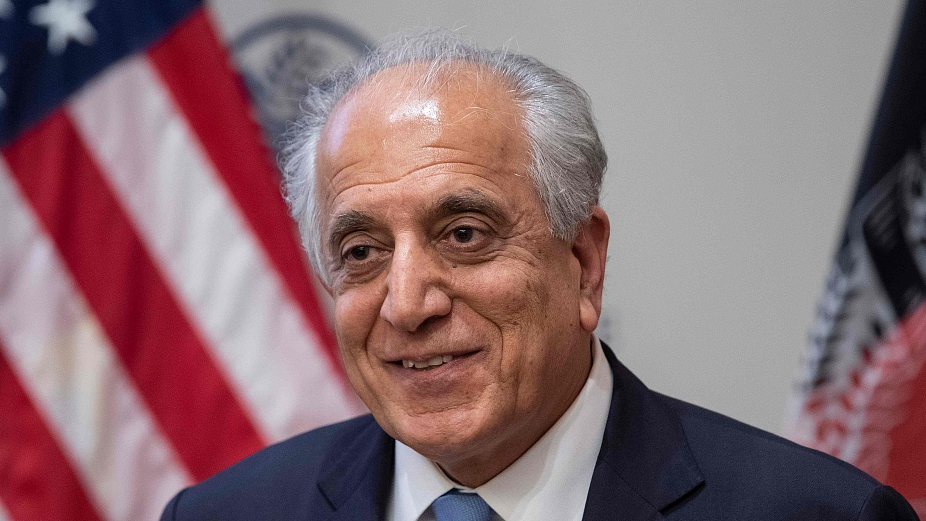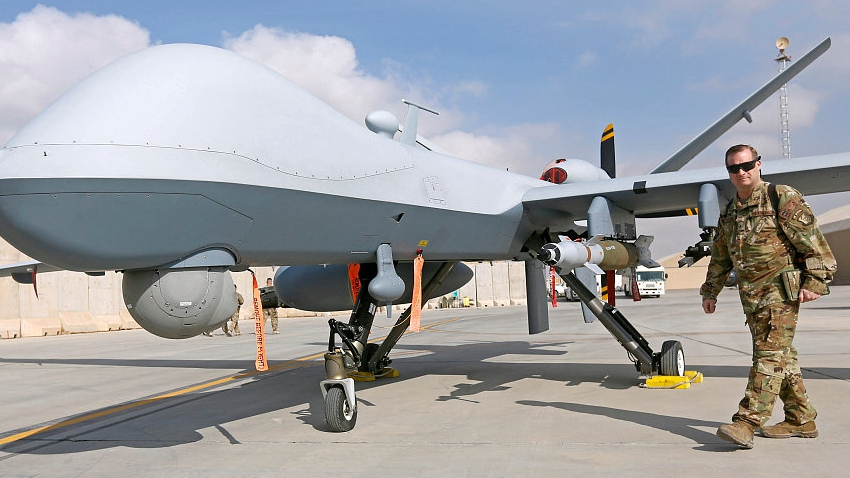
Opinion
16:11, 26-Feb-2019
Afghan peace talks may be a long and difficult process
Cheng Xizhong

Editor's note: Cheng Xizhong is a senior fellow at the Chahar Institute, a former Defense Attache in South Asian Countries, and a former UN Senior Military Observer. The article reflects the author's opinions, and not necessarily the views of CGTN.
A new round of talks between the U.S. and Taliban were started in the Qatari capital Doha on Monday.
Last month, the U.S. government and Afghan Taliban representatives made "significant progress" during six days of negotiations in Doha on the Afghan peace process.
It was reported that the two sides had signed a draft peace agreement and foreign troops in Afghanistan would withdraw within 18 months. This progress encouraged all parties concerned.
Whether there will be substantial progress in this new round of negotiations, however, remains to be seen.
Still, two points have clearly emerged.

U.S. Special Envoy Zalmay Khalilzad /VCG Photo
U.S. Special Envoy Zalmay Khalilzad /VCG Photo
Firstly, the United States is continuing to promote reconciliation between the Taliban and the Afghan government. Secondly, although the United States has expressed its intention to withdraw troops from Afghanistan, it is unwilling to completely give up its leading role over the development of the situation in Afghanistan.
Taliban's tough stance and continued strikes
The United States launched a war in Afghanistan in retaliation for the September 11 terrorist attacks and overthrew the Taliban regime in 2001.
Today, the United States seeks to negotiate with the Taliban. On one side, the negotiation represents the U.S. government, and on the other, it was the target of American military strikes since 2001.
After 18 years of the U.S. military operations in Afghanistan, not only has the Taliban continued to exist, but now it actually controls a considerable part of Afghanistan. Its influence is still growing.
The Taliban believes that the current Afghan government is a puppet supported by the United States, so the Taliban refuses to be involved in the peace process.
The second appeal is that foreign troops led by the United States leave Afghanistan. Although President Donald Trump recently said he would withdraw troops from Afghanistan, a complete withdrawal may not be possible.
With strong advantages on the ground and enormous influence in Afghanistan, the Taliban is a powerful force for the U.S. to engage. If the United States does not compromise, the Taliban may continue to carry out attacks, including suicide bombings.
Afghan President Ashraf Ghani said on January 24 that 45,000 Afghan security forces have been killed since September 2014. On February 25, the United Nations Assistance Mission for Afghanistan reported that 3804 civilians were killed and 7189 injured in Afghanistan last year.
American troops are stationed in heavily guarded military barracks in Afghanistan. Instead of staging manned tasks and strikes, they rely instead on advanced unmanned military equipment.

U.S. Air Force officer passes in front of a MQ-9 Reaper drone, part of a squadron fighting the Taliban, at the Kandahar air base, Afghanistan. /VCG Photo
U.S. Air Force officer passes in front of a MQ-9 Reaper drone, part of a squadron fighting the Taliban, at the Kandahar air base, Afghanistan. /VCG Photo
The serious terrorist threat and the Taliban's tough stance are real headaches for the United States. Therefore, the negotiations between the American representative and the Afghan Taliban may be a long and difficult process.
Pakistan's key role
As a neighbor of Afghanistan, Pakistan has been in a difficult position for years.
In the early 2000s, the United States urged Pakistan to cut ties with the Taliban and support a military strike against Afghanistan.
Over the past eighteen years, Pakistan has made tremendous sacrifices to fight terrorism.
Since 2001, more than 70,000 people have died and its economic losses totaled 250 billion U.S. dollars in the war against terrorism.
In recent years, the Pakistani government has taken effective measures through military and security forces to combat terrorism, making great contributions to regional peace and stability.
Pakistan has played a key role in facilitating negotiations between the Afghan Taliban and the American representative Zalmay Khalilzad. As a supporter of the war on terrorism and a regional influential country, Pakistan can continue this role, and the United States should not be short-sighted.
(If you want to contribute and have specific expertise, please contact us at opinions@cgtn.com.)

SITEMAP
Copyright © 2018 CGTN. Beijing ICP prepared NO.16065310-3
Copyright © 2018 CGTN. Beijing ICP prepared NO.16065310-3